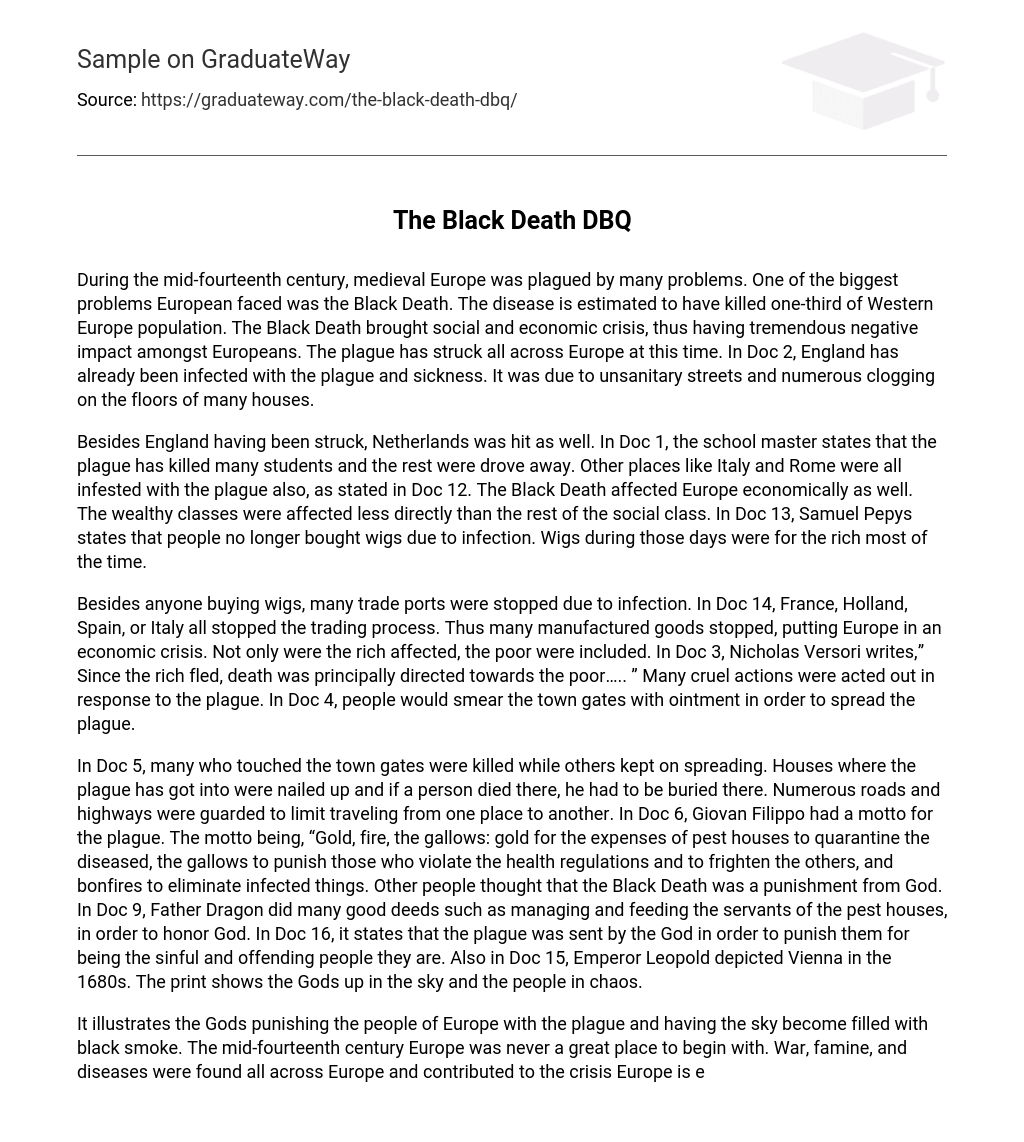During the mid-fourteenth century in medieval Europe, a devastating problem known as the Black Death caused significant devastation. This deadly disease is believed to have claimed the lives of around one-third of Western Europe’s population, leading to severe social and economic hardships for Europeans. The plague spread throughout Europe during this period. According to Doc 2, it is clear that England had already felt the effects of the plague and sickness, which was attributed to unclean streets and dirt accumulation in households.
In addition to England being struck, the Netherlands also experienced the impact of the plague. According to Doc 1, the school master reports that many students were killed by the plague and the remaining ones were driven away. Similarly, in Doc 12, it is mentioned that other places like Italy and Rome were also infested with the plague. The economic consequences of the Black Death were felt throughout Europe. While the wealthy classes were indirectly affected, as stated in Doc 13 by Samuel Pepys, who notes that people stopped buying wigs due to the risk of infection. It was mostly the rich who wore wigs during that time.
The purchase of wigs by customers was not the only consequence; several trade ports in France, Holland, Spain, and Italy also ceased trading due to infection. Consequently, the production of numerous goods came to a halt, plunging Europe into an economic crisis. The impact of the plague affected not only the wealthy but also the poor. According to Nicholas Versori in Doc 3, “Since the rich fled, death was mainly directed towards the poor…” In response to the plague outbreak, various cruel actions were carried out. Doc 4 reveals that individuals intentionally spread the plague by applying ointment on town gates.
Doc 5 describes the implementation of strict measures to contain the spread of the plague. The town gates were fatal for many, but the disease continued to spread. Infected houses were sealed off, and those who died there had to be buried on-site. Travel between places was restricted by guarding numerous roads and highways.
Doc 6 presents Giovan Filippo’s motto regarding the plague. His motto included using funds for pest houses to quarantine the sick, imposing punishment through gallows for those who violated health regulations and to serve as a deterrent, and burning infected objects in bonfires. Some believed that the Black Death was a divine punishment from God.
Doc 9 mentions Father Dragon’s benevolent actions, such as taking care of and providing food for the servants in the pest houses, as a way to honor God.
According to Doc 16, the plague was perceived as a divine punishment sent by God to chastise the sinful and offensive population.
In Doc 15, Emperor Leopold depicted the chaos in Vienna during the 1680s in a print. The image portrays gods in the sky overseeing turmoil among the people.
During the mid-fourteenth century, Europe was confronted with various difficulties such as warfare, famine, and diseases. In response to the people’s misdeeds, the Gods unleashed the Black Death, which resulted in widespread despair and a high number of deaths throughout the continent. The previously lively sky transformed into a somber expanse filled with black smoke. This calamitous plague became Europe’s most significant natural catastrophe, exacerbating its existing social and economic crisis.





